Detroit Boat Delivers Mail by the Pail
A Detroit-based company has brought mail and supplies to big ships sailing the Great Lakes since late 1800’s.
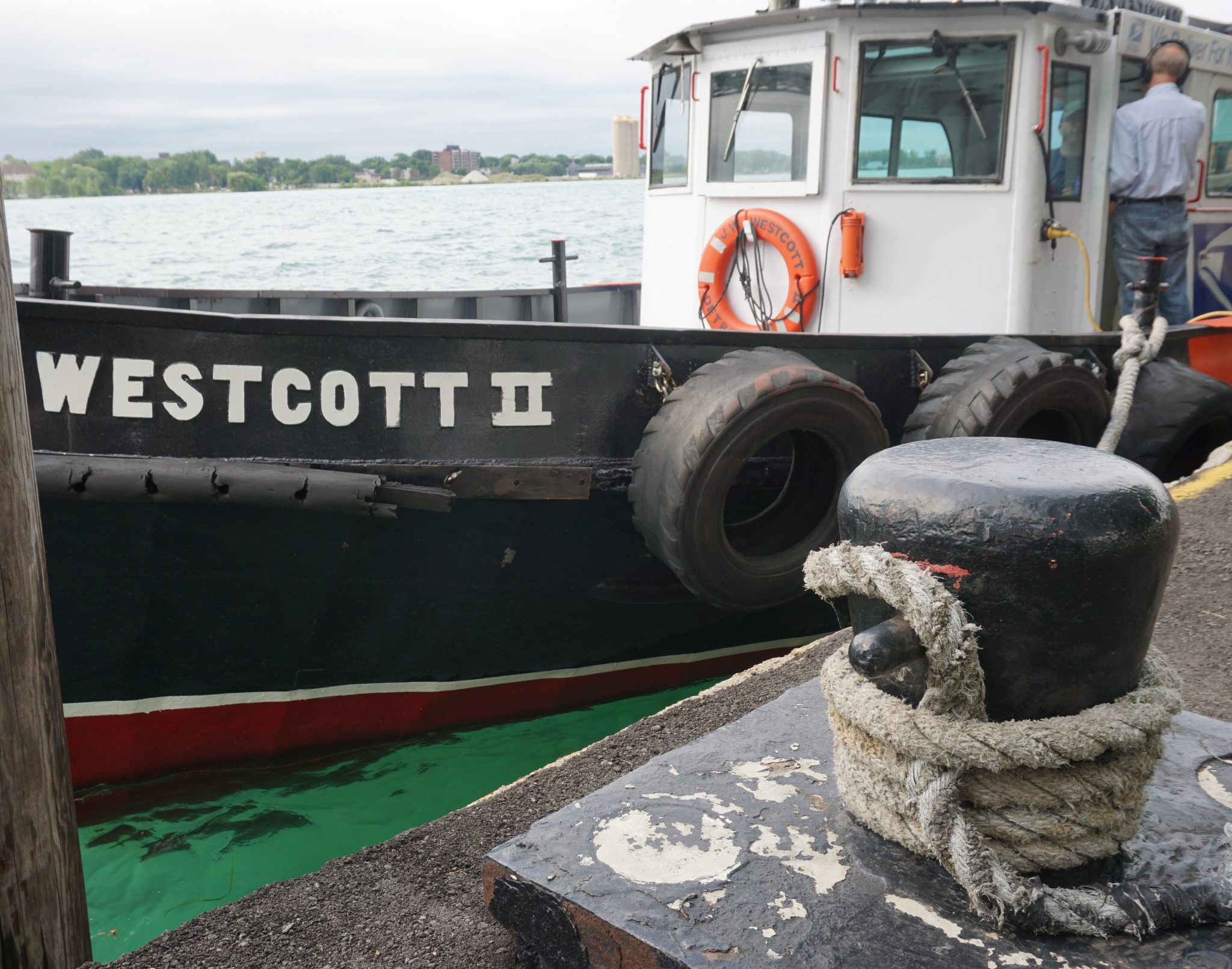
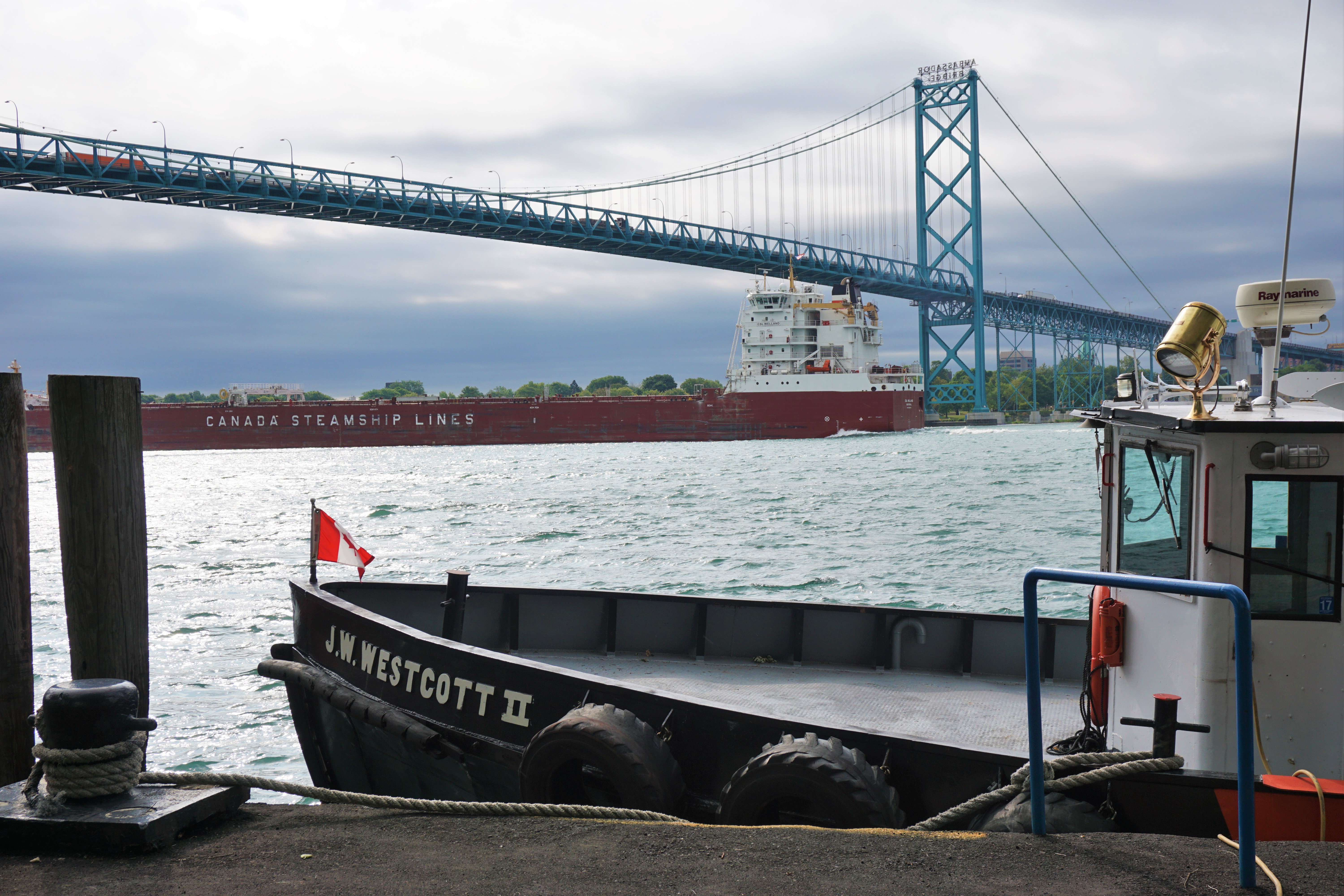
Imagine being a sailor on the Great Lakes stuck on a freighter for weeks on end on a schedule so tight the ship can barely slow down.
How do you get things like, say, mail?
Well there’s a boat for that.
Mariners email and order packages online as much as anyone.
But then they have to keep an eye out for this squat, unassuming building along the Detroit River, one of the few shipping lanes handling freighters laden with coal or iron ore.
Inside a radio beeps as Relief Captain Neil Schultheiss of the J.W. Westcott Company leans towards a speaker.
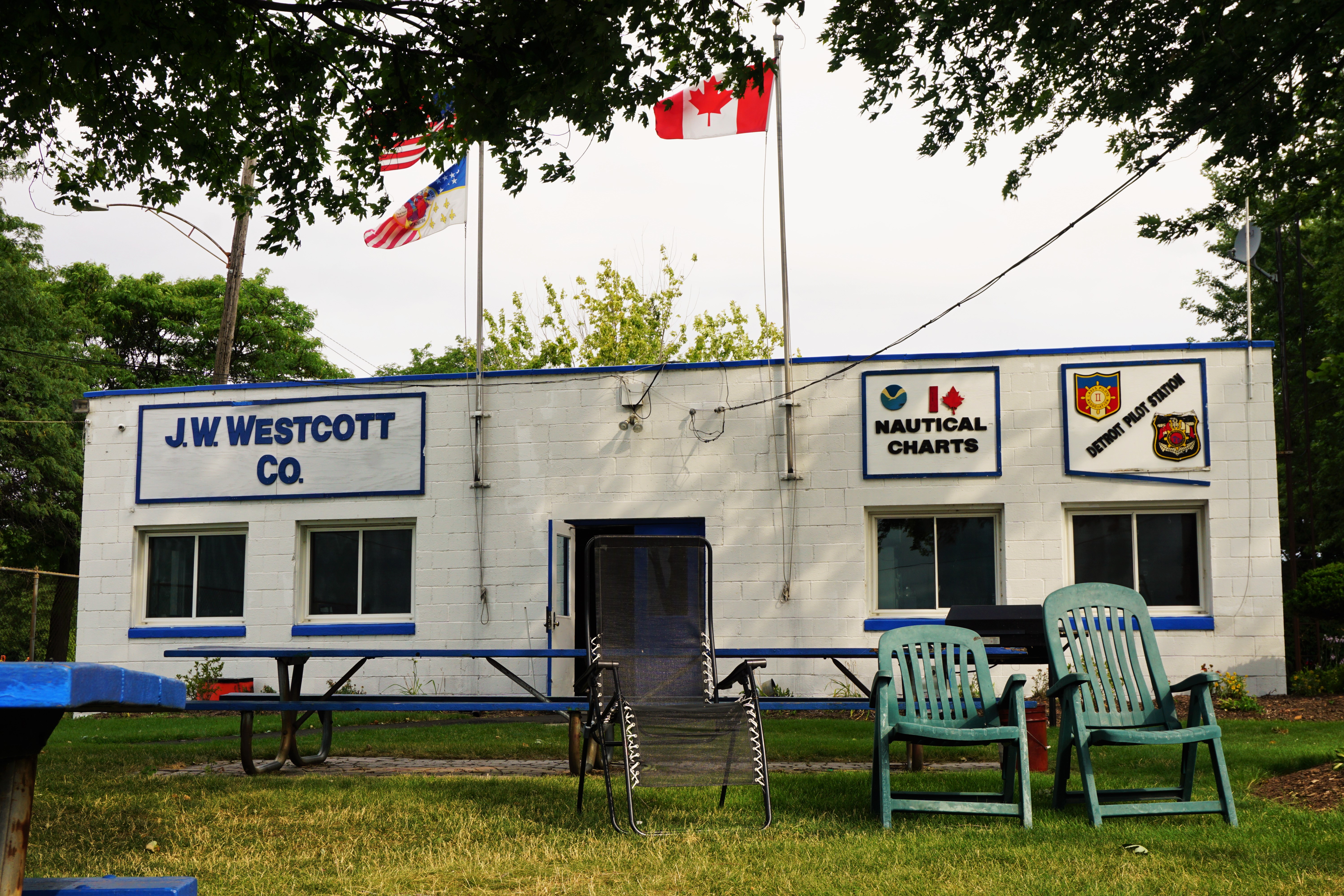
“Yes good morning sir,” he said. “We see you coming up on there. We don’t have anything for you but we’d be happy to come out there if you have anything coming off.”
A disembodied radio voice replied, “I’ll check with the captain. Come back to you in a minute.”
“Okay roger that, standing by on 10,” Schultheiss said.
He’s in the operations center of the Westcott Company, which has been delivering mail and supplies by boat since 1874.
Schultheiss glances at cubby holes stacked with mail for each domestic freighter on the Great Lakes and says he still marvels at what’s about to happen.
“There’s nowhere else in the world where you’ll be along this size ship at these speeds,” he said. “They do slow down. But they only slow down to a certain point.”
The speaker crackles that a vessel is approaching and veteran Captain Sam Buchanan heads towards the dock alongside the building.
The company used to use a row boat to deliver mail and supplies to passing ships.
Now they use a tug boat, the only one with its own zip code.
Buchanan climbs onboard and steers toward a massive, oncoming freighter, the Cason J. Callaway.
He says the company takes almost anything out to the freighters. Packages, replacement sailors, even, once, a goat.
Buchannan says he also takes great pains to stay firmly attached to the spokes of his steering wheel.
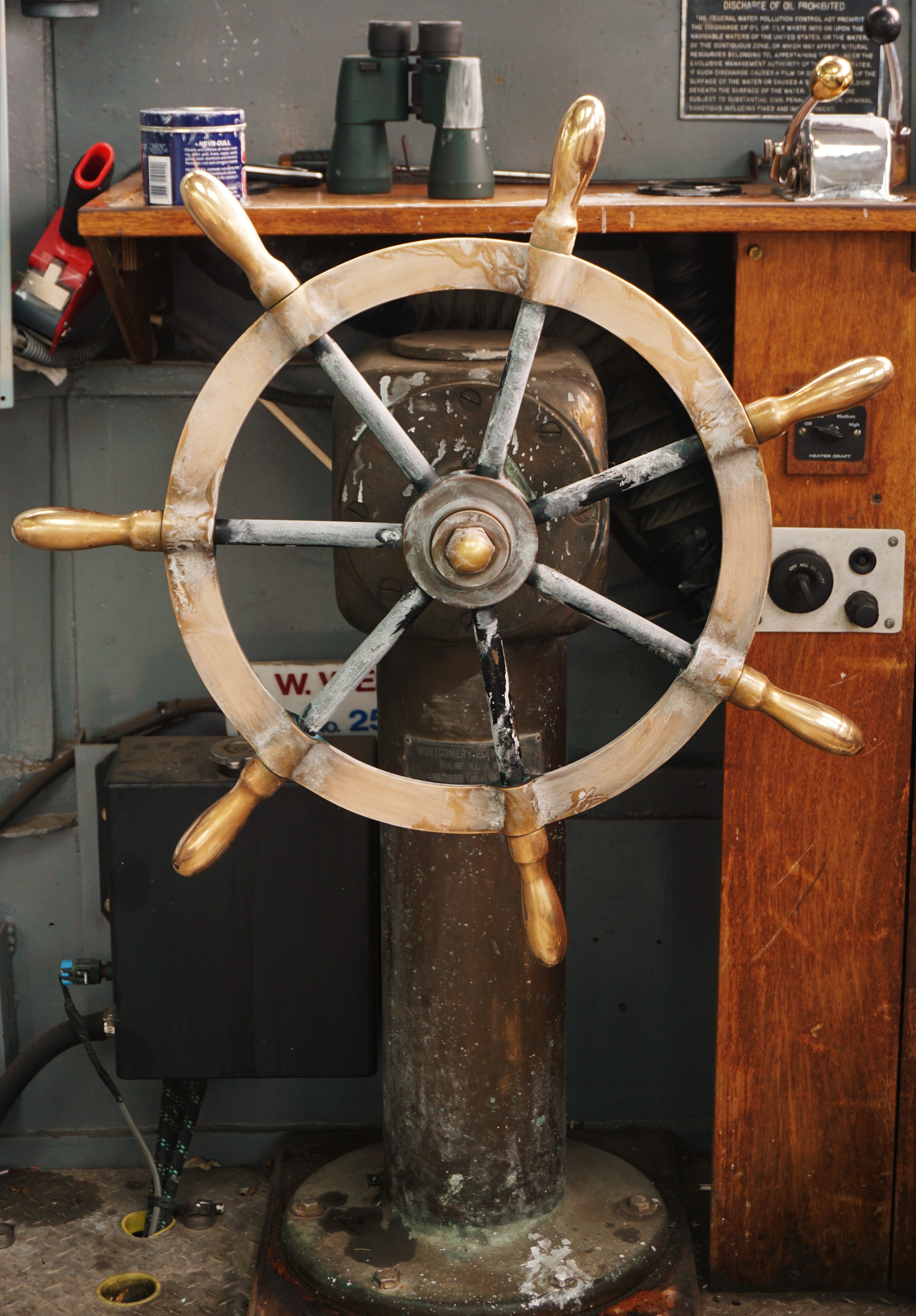
“I don’t swim all that well so I stay out of the water,” Buchanan said.
When a passenger notes that could be a bit concerning, seeing that he’s the captain of the vessel and all, Buchanan had a ready reply.
“I have every incentive to keep you afloat, you have to think of it that way,” Buchanan smiled.
Mail by the Pail
Buchanan deftly pulls alongside the Callaway, big tires lining the tug brushing gently against the freighter, which towers about five stories above the water.
The freighter’s crew begins the not-so-high-tech job of transferring letters by lowering a bucket down to Buchanan’s boat.
Mail by the pail, they call it.
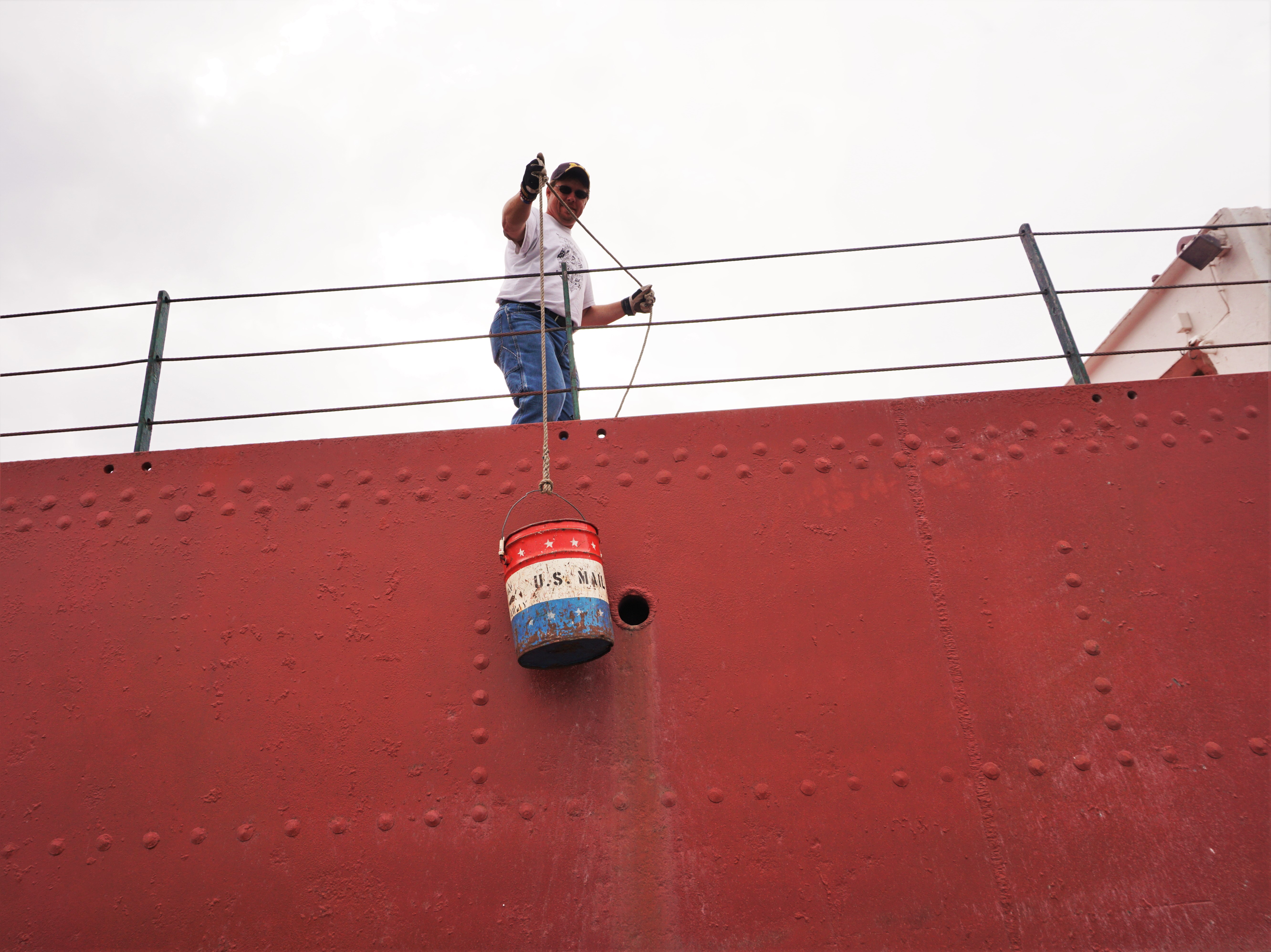
Buchanan watches carefully.
“They have this bucket ready, he drops the bucket, looks like mail came off. Now I’ll blow my whistle at him and he’ll blow back. It’s a salute.”
Buchannan issues one long whistle followed by two short ones, and the freighter responds with a resounding bass whistle, again one long and two short, blasting across the waves.
Buchanan says he often gets more than just a good bye from crews aboard such vessels.
He said, “Sometimes they’ll put cookies off for us. One boat always puts off breakfast sandwiches if it’s breakfast time. We’re kinda like their lifeline to the rest of the world, you know.”
Collisions and Coffee
Buchanan heads back to shore, ready for another of the two or three dozen deliveries the company makes every day between April and December.
“This is what I do all day,” he said. “I run out, have controlled collisions with freighters, then go back to the station and have more coffee.”
Buchanan steps on the dock and pats the rust-free hull of a nearby mail boat.
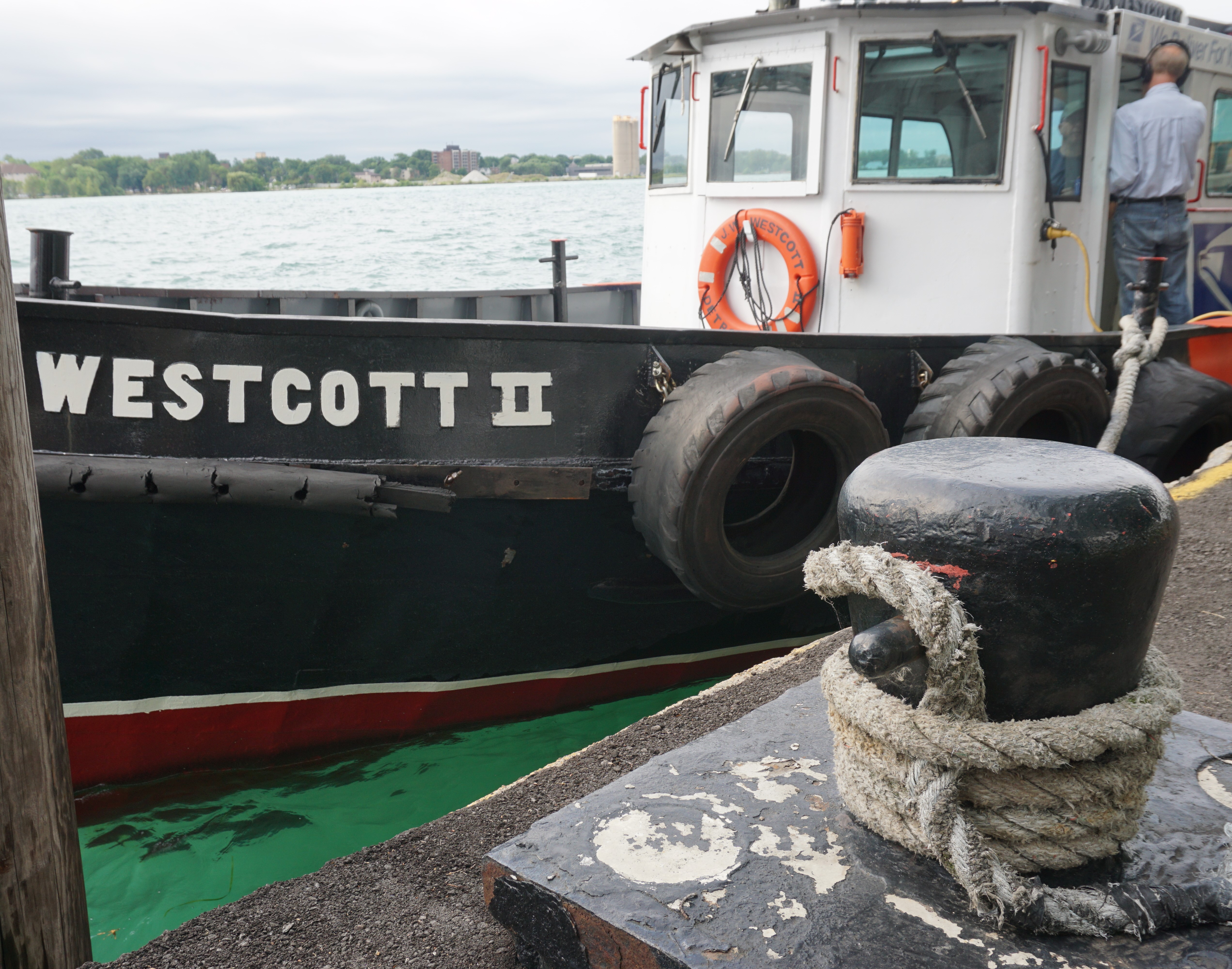
It was built in 1949.
But Buchanan says nothing seems to stop it, not even when it sank to the bottom of the river in 2001.
Buchanan said he doesn’t talk about that very often.
“You know we thought for a few minutes that maybe it’s not fixable. But then we started thinking about our crew members that were aboard it and we all got together and everybody said you know what, if nothing but for the memory of those folks, we’re gonna put it back together. And we did.”
And Buchannan predicts, despite cutbacks in shipping traffic and first-class mail deliveries, the floating post office will also survive.
He said, “’Long as there’s a ship sailing on the Great Lakes out here…there’ll be a need for us.”
With that Buchanan heads back to the small station house to grab another cup of coffee. And await another controlled collision.
